
Dr. Daria Smirnova
Dr. Daria Smirnova is the winner of the 2022 IUPAP C17 Early Career Scientist Prize “for fundamental aspects on Laser Physics and Photonics”. She is awarded “for her outstanding contributions to the field of topological photonics, particularly for her innovative works on designing and probing topological phases of light in leaky and nonlinear photonic systems”.
Daria Smirnova received her Ph.D. in Physics in 2016 from the Australian National University (ANU), followed by work experience in the USA, Russia and Australia. Currently, she holds a prestigious Discovery Early Career Research Fellow position supported by the Australian Research Council at the ANU and drives interdisciplinary research projects bridging the concepts of nonlinear optics, topological photonics and multipolar electrodynamics.
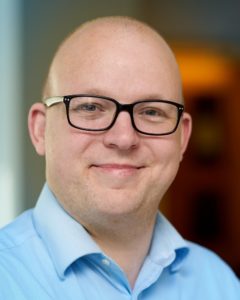
Dr. Peter McMahon
The winner of the other 2022 IUPAP C17 Early Career Scientist Prize “for applied aspects on Laser Physics and Photonics” is Dr. Peter McMahon, who is awarded “for his outstanding contributions to the development of photonic computing machines, including Ising machines and optical neural networks.”
Dr. McMahon received his PhD in electrical engineering from Stanford University in 2014, and subsequently began an appointment as a postdoctoral researcher in applied physics, also at Stanford. He moved to Cornell University in 2019, where he is currently an assistant professor of applied and engineering physics.
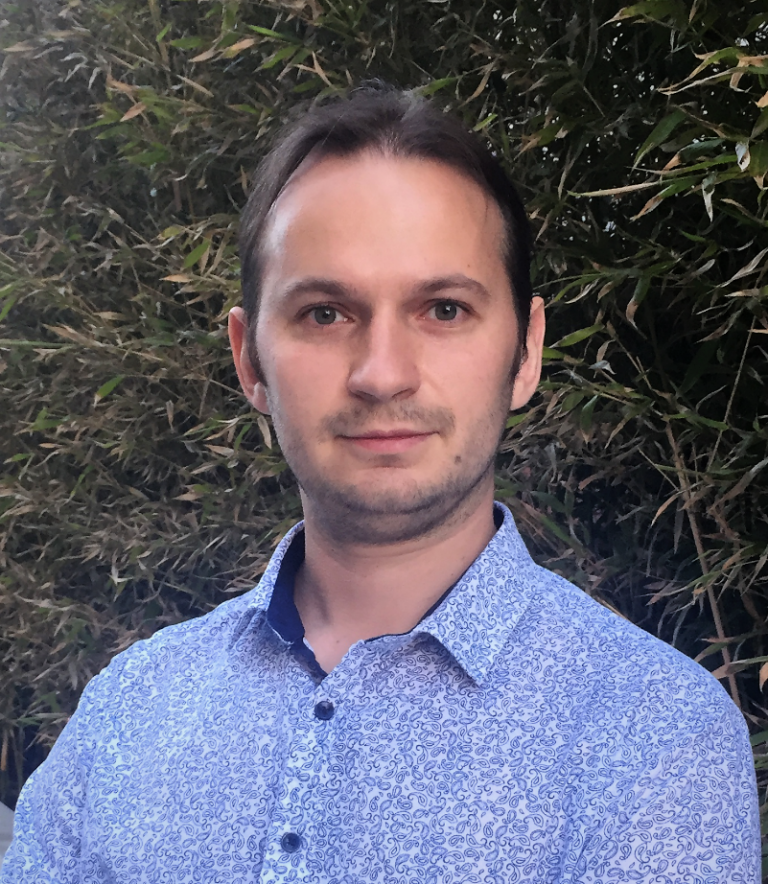
Dr Sergey Kruk
‘Fundamental Aspects’
“For his ground breaking contributions to the study of topological states of light at the nanoscale, particularly for his pioneering work on nonlinear and nonreciprocal effects in photonic nanostructures”.
Short Biography
Sergey Kruk graduated from the Belarusian State University, and received his PhD in physics from the Australian National University. He holds a Research Fellow position at the Nonlinear Physics Centre, Research School of Physics, Australian National University where he has developed and is managing experimental facilities on nonlinear meta-optics and nanophotonics. Dr. Kruk has conducted his research at the Australian National Fabrication Facility; at Oak Ridge National Laboratory, US; and at the Ultrafast Nanophotonics group, the Paderborn University, Germany. His work has led to more than 30 publications among which are Nature Nanotechnology, Nature Communications, Science, Nano Letters and Optica.
Sergey’s recent focus has been on topologically nontrivial states of light in dielectric nanoresonators. His interest was in introducing nonlinear optical interactions to topologically nontrivial nanostructures. This work has brought nonlinear topological photonics to the realm of nanoscience, it has led to demonstrations of nonlinear light generation in topological nanostructures and to direct observations of robust light propagation in nanostructured topological waveguides.
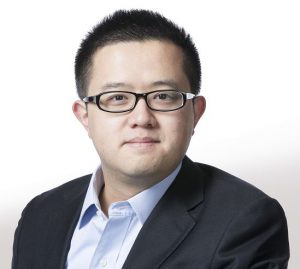
Dr. Jinyang Liang
‘Applied Aspects’
“For his outstanding contributions that apply coded-aperture optical imaging to ultrafast visualization and ultra-precise modulation of laser beam/pulse profiles”.
Short Biography
Dr. Jinyang Liang is an Assistant Professor at the Institut National de la Recherche Scientifique (INRS) – Université du Québec. He leads the Laboratory of Applied Computational Imaging. His research interests cover a broad range of areas, including ultrafast imaging, high-precision laser beam shaping, and photoacoustic microscopy. His research primarily focuses on implementing optical modulation techniques to develop new optical instruments for applications in physics and biology. He has published over 50 journal papers and conference proceedings, including Nature (cover story), Science Advances, and Light: Science & Applications. He has applied seven U.S. patents on ultrafast optical imaging technology. He received his B.E. degree (with honor) in Optoelectronic Engineering from Beijing Institute of Technology in 2007, and his M.S. and Ph.D. degrees in Electrical Engineering from the University of Texas at Austin, in 2009 and 2012. From 2012 to 2017, he was a postdoctoral trainee in Washington University in St. Louis and California Institute of Technology.
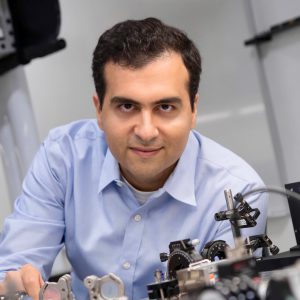
Dr. Alireza Marandi
‘Applied Aspects’
“For contributions to nonlinear photonics, particularly his pioneering work on computing with networks of OPOs and demonstration of optical Ising machines, as well as half-harmonic generation of mid-infrared frequency combs.”
Short Biography
Alireza Marandi is an Assistant Professor of Electrical Engineering and Applied Physics at Caltech. Before joining Caltech, he held positions as a postdoctoral scholar and a research engineer at Stanford. He was also a visiting scientist at the National Institute of Informatics in Japan, and a senior engineer in the Advanced Technology Group of Dolby Laboratories. He received his PhD from Stanford University in 2013, his MS from the University of Victoria, Canada, and his BS from the University of Tehran, Iran, all in electrical engineering. His research is focused on fundamental technological developments in nonlinear photonics. His work explores the frontiers of ultrafast optics, optical frequency combs, quantum optics, optical information processing, mid-infrared photonics, and laser spectroscopy. He is a Senior Member of OSA and IEEE and has received the faculty early career development (CAREER) award from NSF in 2019.
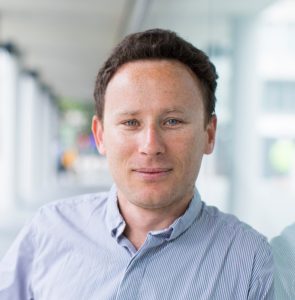
A/Prof Igor Aharonovich
‘Applied Aspects’
“The 2017 IUPAP Young Scientist Prize in Laser Physics and Photonics (Applied Aspects) has been won by A/Prof Igor Aharonovich “for his outstanding contributions to research on quantum emitters in wide band-gap semiconductors”
Short Biography
A/Prof Aharonovich is currently an academic at the University of Technology (UTS) Sydney, Australia where he leads the Nanophotonics research group. Previously he was a postdoctoral fellow at Harvard University, Boston, United States; following a PhD (2010) at University of Melbourne, Melbourne, Australia; and a BSc (2005) & MSc (2007) from Technion – Israel Institute of Technology, Israel.
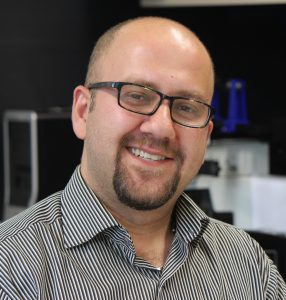
Dr Mohsen Rahmani
‘Fundamental Aspects’
“The 2017 IUPAP Young Scientist Prize in Laser Physics and Photonics (Fundamental Aspects) has been won by Dr Mohsen Rahmani “for his outstanding contributions to light-matter interactions at nanoscale, particularly nonlinear nanophotonics via metallic, dielectric and semiconductor nanostructures and metasurfaces, which have paved the road for extending nonlinear optics to nanoscale”.
Short Biography
Dr Rahmani is currently an Australian Research Council Discovery Early Career Research Award holder at the Australian National University, Canberra Australia. Until recently he was a research associate at the Blackett Laboratory, Imperial College London, United Kingdom; following a PhD from the National University of Singapore, Singapore (2013).
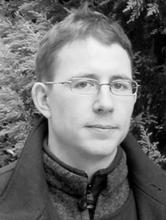
Dr Mark Thompson
“Applied Aspects”
The IUPAP C17 Laser Physics and Photonics “Applied Aspects” Young Scientist Prize, has been awarded to Dr Mark Thompson, Centre for Quantum Photonics, University of Bristol, United Kingdom. Dr Mark Thompson is awarded the prize “for his contributions to the new and emerging field of quantum photonics, and particularly for his pioneering work in integrated quantum photonic circuits.”
Short Biography
Mark Thompson did his Master of Physics at the University of Sheffield, United Kingdom, finishing in 2000. He completed his PhD in 2007 at the University of Cambridge, UK, in the Department of Electrical Engineering. Subsequently he has held postdoctoral fellow positions at the University of Cambridge, University of Bristol, UK; and Toshiba, Japan. He was appointed as a lecturer in the School of Physics, University of Bristol, UK, in 2010 and is now a Reader in Quantum Photonics and Director of the Quantum Engineering Centre for Doctoral Training. He has published 36 journal articles up to 2014 and has more than 1900 citations. He has 7 patents, has given numerous invited talks.
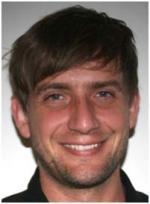
Dr Robert Fickler
“Fundamental Aspects”
The IUPAP C17 Laser Physics and Photonics “Fundamental Aspects” Young Scientist Prize is awarded to Dr Robert Fickler, Institute for Quantum Optics and Quantum Information, University of Vienna, Austria. Dr Fickler is awarded the prize “for his ground breaking contributions to the entanglement of complex structures of photons, which have opened up new avenues for quantum communication”.
Short Biography
Robert Fickler completed his Bachelor and Masters degrees (in Physics) at the University of Ulm, Germany, finishing in 2009. He completed his PhD in 2014 at the University of Vienna in the Institute for Quantum Optics and Quantum Information. His thesis, entitled “Entanglement of Complex Structures of Photons”, received a Doc.Award. He is now working as a postdoctoral fellow, continuing in the group of Professor Anton Zeilinger in Vienna. He has published 14 papers up to 2014. The 2012 Science paper “Quantum entanglement of high angular momenta” was identified as one of the top 10 breakthroughs in Physics of that year by Physics World magazine.




